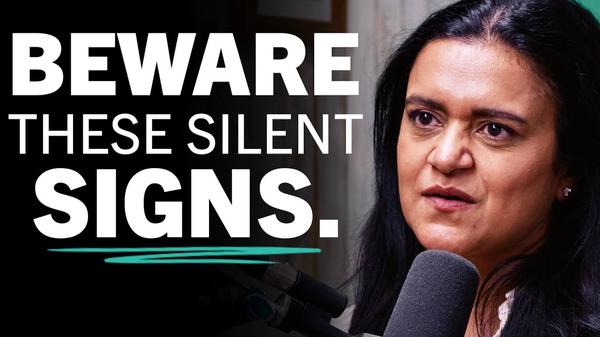James Clear: Building & Changing Habits (#183 rebroadcast)
Peter Attia
Jan 1, 2024
Mindsip insights from this episode:
Implement never miss twice rule to regain momentum after mistakes
It's rarely the first mistake that ruins you, but the spiral of repeated mistakes that follows, so the key is to get back on track quickly.
Make habits reflect your desired identity
The deeper reason habits matter is that every action you take is a vote for the type of person you wish to become, reinforcing your identity.
Use outlet timer to enforce consistent bedtime for better sleep
An outlet timer, which kills power to your internet router at a set time, can be a useful tool to enforce a consistent bedtime.
Join groups that normalize desired behaviors for lasting change
To make a behavior change last, join groups where your desired behavior is the normal behavior, because the desire to belong often overpowers the desire to improve.
Focus on prediction to harness dopamine for habit formation
Dopamine's crucial role in habits is not about the satisfaction of the reward itself, but about the prediction and anticipation that drives the craving to act.
Establish daily habits to achieve success over mere goals
Winners and losers often have the same goals; the distinguishing factor is the system of daily habits they follow.
Discover passion to enhance perseverance and discipline
The way to increase your perseverance and discipline is to find skills where you are highly interested, because it's hard to beat the person who is having fun.
Reinforce positive behaviors with immediate rewards
The cardinal rule of behavior change is that behaviors immediately rewarded get repeated, while behaviors immediately punished get avoided.
Implement two-minute rule to establish new habits
To start a new habit, scale it down to something that takes two minutes or less to master the art of showing up before you try to improve it.
More from
Peter Attia
AMA #78: Longevity interventions, exercise, diagnostic screening, and managing high apoB, hypertension, metabolic health, and more
Ketogenic diet, ketosis & hyperbaric oxygen: metabolic therapies for weight loss, cognition, Alzheimer's & more | Dom D'Agostino, Ph.D.
The evolutionary biology of testosterone: how it shapes male development and sex-based behavioral differences, | Carole Hooven, Ph.D.
The impact of gratitude, serving others, embracing mortality, and living intentionally | Walter Green (#288 rebroadcast)
Thyroid function and hypothyroidism: why current diagnosis and treatment fall short for many, and how new approaches are transforming care | Antonio Bianco, M.D., Ph.D.
You also might be interested in
The Hidden Damage That Happens "Behind-The-Scenes" In The Adult Entertainment Industry, With Former Adult Actress Felicity Feline
How to Set & Achieve Goals | Huberman Lab Essentials
The Science of Erotic Altered States | Biohacking Sex
Neuroscientist: If You’re Feeling THIS, You’ve Lost Touch With Your True Self
Neuroscientist: If You Feel THIS, You're Living the Wrong Life (Unlock The One You're Meant For)









